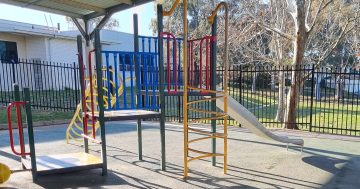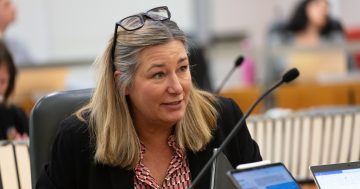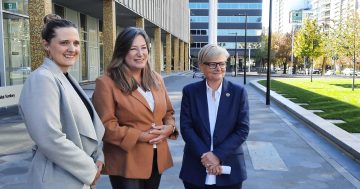
Schools need counsellors not chaplains, says ACT Council of Parents and Citizens Associations.
The ACT Government’s curtailing of the federally funded school chaplaincy program has been welcomed by the Territory’s peak public school parent body.
The ACT Council of Parents and Citizens Associations said it recognised that ACT schools must be secular and that the real need was for qualified mental health professionals in our schools.
“Our schools need counsellors, not chaplains,” said Council President Kirsty McGovern-Hooley. “With suicide the leading cause of death among young people in Australia, access to qualified help is imperative.”
She said a national program which employed only religious personnel was a misdirection of funding that took resources which could be used for qualified social workers, mental health nurses and counsellors in schools to assist students and families.
“Overwhelmingly, our members have told us that school-based mental health workers should not be affiliated with a religious body. Many parents do not think it is appropriate to have personnel identified as religious in our secular government schools,” she said.
“Our schools serve diverse communities and appointing a chaplain of one religion is inappropriate and likely to alienate those of other faiths.”
Education Minister Yvette Berry’s decision to end the National School Chaplaincy Program in public schools from next year has been criticised by her Federal counterpart Dan Tehan, who said it was disappointing.
Ms Berry said they would be replaced by qualified youth and social workers to service the whole school.
She said ACT public schools were required under the Education Act to operate in a secular, non-sectarian way and religious chaplains were incompatible with this objective.
The Territory’s public schools can opt in to the federal program, which provides up to $20,000 in funding for the chaplains, who can stay on for 2019 as long as they do not work in a religious capacity.
Scripture Union Queensland CEO Peter James, who has led the expansion of the school chaplaincy program, said the decision did not make sense and did not seem to do any public good.
“It seems odd that for a government of a multicultural society they’d exclude a spiritual dimension for those who have chosen it, and it is a free choice program,” he said.
He said chaplains were trained youth workers who were able to help students, particularly in times such as a death in the school, from a faith perspective as well.
“A holistic model of care should include a spiritual dimension to that care, and the chaplains are trained to provide that,” Mr James said.
“So why in a multicultural society where there are children and families who come from a faith background would you seek to exclude that dimension?”
He said the program was not about imposing views on others.
“Even though a child may come from a Muslim background or other faith backgrounds, the chaplain can approach that conversation knowing the kinds of issues that child and family have because they share a faith perspective. We think that’s valuable in schools, we think that’s worth keeping, it’s not coercive. There’s no complaint that it’s not working.”
Of the 88 public schools in the ACT, 22 currently take part in the National School Chaplaincy Program. Of these, there is one early childhood school, eight primary schools, seven high schools, four colleges and two P-10 schools.
Ms Berry welcomed federal Labor’s commitment, if elected, to allow secular welfare workers to be funded under the program, as was previously the case.

















